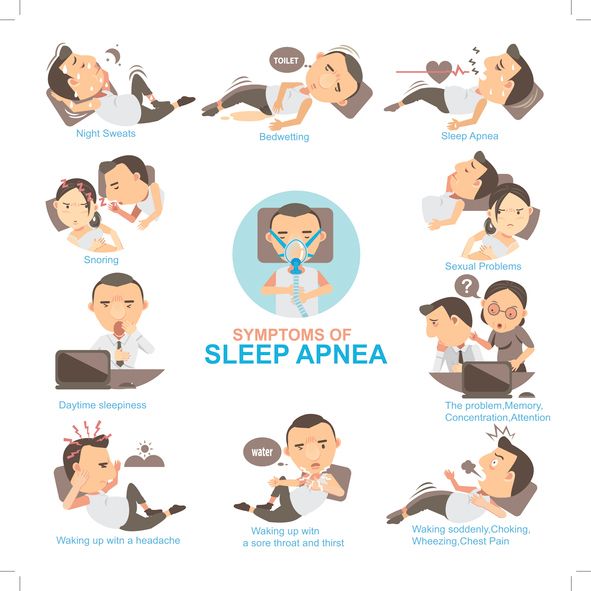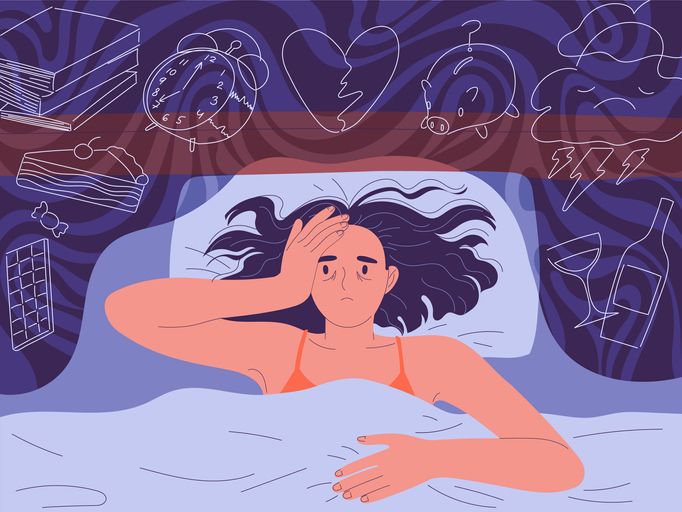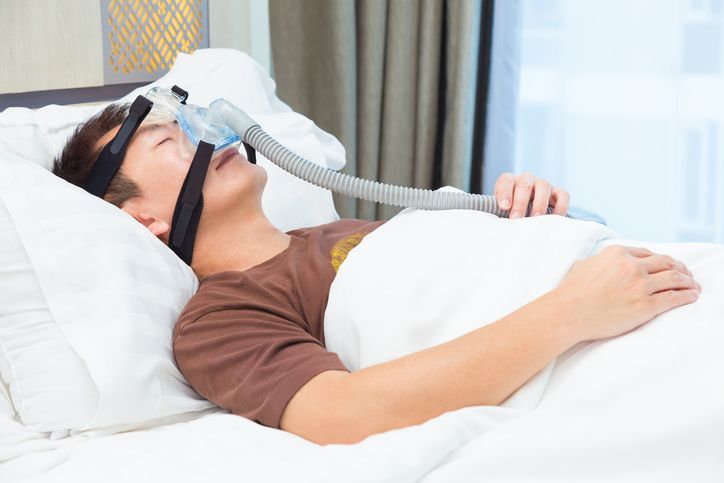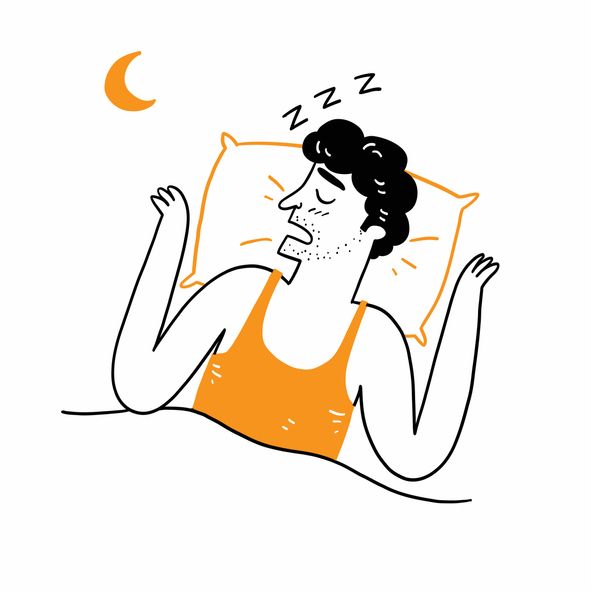- Home
- Trend
- Weight Loss Strategies
- Acne Tips
- Hair Health Information
- Blemish Removal Tips
- Acne Scar Removal Tips
- Muscle Building Techniques
- Intimate Care Tips
- Postpartum Intimate Care
- Eye Bags Wiki
- Tips for Face Slimming
- Secret of Permanent Hair Removal
- Breast Enlargement Tips
- Cure to Snoring
- Marionette Lines
- Skin-Tightening Secrets

免費體驗
Fotona 4D NightLase Snoring Treatment
1 Minute Self-Registration
Date should not be before minimal date
Snoring is a common problem that affects a lot of people all over the world. Snoring can be annoying for both the person who does it and their sleep partner. It can also cause health problems. In this piece, we'll talk about what makes people snore and what happens when they do. We'll also talk about effective treatments and home remedies that can help. So, let's dive in and learn everything we can about snoring. Snoring happens when airflow in the airways is partially blocked while a person is sleeping. This causes the muscles in the throat to vibrate, which can be heard. About 40% of people snore sometimes, and about 25% of them do it all the time. Snoring can be caused by many things, from the way you live to health problems that are already there. It not only wakes up the person who snores, but also makes it hard for their bed partner to sleep.
1
What is Snoring and What Causes Them?

Snoring is a sound that comes from the soft tissues in the back of the throat moving back and forth while you sleep. Snoring once in a while is usually safe, but loud, constant snoring can be a sign of a health problem. Snoring is caused by a number of different things. These things are:
Obstructed airways
Snoring can happen when your nose and throat partly block the flow of air. This can happen for a number of reasons, such as a stuffy nose, a deviated septum, big tonsils or adenoids, or because the muscles in the throat relax at night.
Obesity
Snoring can be caused by extra weight, especially around the neck. Fat in the throat can make the airway smaller, which can cause coughing.
Sleep position
When you sleep on your back, your tongue and soft tissues in your throat can fall back into your mouth, which can make you snore. Sometimes the problem can be fixed by changing how you sleep.
Alcohol and sedatives
When you drink booze or take sleeping pills before bed, the muscles in your throat can relax too much. This can cause you to snore. These things can make it harder for a person to breathe.
Aging
As we get older, the muscles in our throats tend to get weaker, which can make us more likely to snore. The loss of muscle tone can also make the tongue fall back into the throat while you sleep.
Nasal problems
Snoring can be caused by nose congestion, allergies, or physical problems like a deviated septum that block airflow.
Sleep apnea
Snoring can be a sign of sleep apnea, a sleep disease in which breathing stops many times while sleeping. Sleep apnea needs to be treated by a doctor because it can cause major health problems.
Smoking
When you smoke, the membranes in your nose and throat get irritated. This causes swelling and congestion, and with that, makes it easier to snore.
Genetic factors
Some people may be more likely to snore because of their genes. If people in your family snore, you may be more likely to do it too.
2
What Types of Snoring are There?

Snoring can happen in different ways, and each one has its own reasons and signs. By figuring out the type of snoring, both people who snore and medical experts can better understand the underlying causes of the problem and choose the best way to treat it. These are some types of snoring:
Nasal snoring
This kind of snoring is usually caused by stuffy noses or problems with the nose's structure, like a crooked septum or nasal polyps. Most people notice it more when they breathe through their nose.
Mouth snoring
Mouth snoring is when a person snores most of the time with their mouth open. It can happen when the muscles in the jaw and throat relax, letting the tongue fall back and partly block the airway.
Tongue snoring
Tongue snoring is when the sound of snoring comes mostly from the tongue moving back and forth. This can happen when the tongue gets loose during sleep and blocks the mouth.
Palatal snoring
Palatal snoring is snoring that comes from the soft tongue at the back of the roof of the mouth. It can be caused by a number of things, like a small airway, loose throat muscles, or too much tissue in the palate.
Positional snoring
Some people only snore in certain sleeping situations, like when they are on their back. This is called positional snoring, and it can be caused by the way the throat and tongue are positioned when you sleep in this way.
Vibratory snoring
Vibratory snoring is when the soft tissues in the throat and mouth move very quickly and loudly while you sleep. It can happen when the muscles are relaxed, the airway is narrowed, and the airflow is raised.
Sleep apnea-related snoring
Snoring can also be a sign of obstructive sleep apnea (OSA), a sleep disease in which breathing stops many times while sleeping. When someone has OSA, they often snore loudly and make choking or gasping sounds when they stop breathing for a short time.
- 10 Myths You Should Know Before Getting Anti Snoring Devices
- Causes, Remedies & The Guide To Fotona 4D NightLase Snoring Treatment To Stop Snoring
- The Science Behind The Anti-Snore Pillow: How They Help Reduce Snoring?
- Which Anti-Snoring Nasal Strips Type Suits You? Introducing the Latest Snoring Detection Apps
3
Effects of Snoring on Health

To understand why people snore, it is important to know a little bit about their bodies. When we take a breath, air goes through our noses, down our throats, and into our lungs. The airway is made up of the nasopharynx, which is the upper part of the throat behind the nose, the oropharynx, which is the middle part of the throat behind the mouth, and the laryngopharynx, which is the lower part of the throat near the voice box. Snoring can happen when any of these areas is partly blocked.
Snoring can hurt your physical and mental health in a number of ways. Let's look at a few of these results:
Daytime sleepiness
People who snore may have trouble sleeping, which can make them sleepy during the day. This can make it hard for them to focus, work, and do other daily tasks. It could also make it harder to drive or work with machines safely.
Cardiovascular issues
Heart problems are more likely to happen to people who snore for a long time. Snoring can cause high blood pressure, irregular heart beats, and a higher risk of heart disease and stroke because it shakes the throat and sometimes blocks it.
Mental health issues
Snoring can keep you from getting enough sleep, which can lead to mood disorders like irritability, anxiety, and sadness. It can also hurt your brain, memory, and emotional health as a whole.
Decreased quality of life
Snoring can have a big effect on a person's quality of life as a whole. Chronic fatigue, daily sleepiness, and cognitive problems can make people less productive, less able to participate in social activities, and less happy with life in general.
4
Medical Conditions Associated with Snoring

Snoring is often seen as an innocent nuisance, but it can sometimes be a sign of a more serious health problem. Some health problems can cause or make snoring worse, including:
Sleep apnea
Sleep apnea is a sleep disease in which you stop breathing or breathe very shallowly while you sleep. If you don't treat it, it can make you snore loudly and lead to other health problems.
Nasal polyps
Nasal polyps are growths that form in the nose or airways that are not cancerous. They can block the airway and make you snore.
Enlarged tonsils or adenoids
Large tonsils or adenoids can block the mouth in children and some adults, causing them to snore.
Hypothyroidism
A thyroid gland that doesn't work well can lead to weight gain and fluid buildup, which can make snoring more likely.
Deviated septum
When the wall that splits the nasal passages is crooked or off-centre, this is called a deviated septum. This can make it hard for air to flow properly and make you snore.

免費體驗
Fotona 4D NightLase Snoring Treatment
1 Minute Self-Registration
Date should not be before minimal date
5
Medical Treatments for Snoring

If snoring is caused by an underlying medical condition or is so bad that it affects your general health, you may need medical help. A few of the most popular medical treatments for snoring are:
Oral appliances
Oral appliances, like mandibular advancement devices (MADs) or tongue-retaining devices, can help adjust the jaw or tongue to keep the airway open while sleeping and reduce snoring.
Surgery
In some cases, people who snore may need surgery to fix problems with their structure that cause them to snore. Procedures like uvulopalatopharyngoplasty (UPPP), tonsillectomy, and adenoidectomy can help widen the airway and lessen snoring.
Laser-assisted uvulopalatoplasty (LAUP)
LAUP is a surgery that uses lasers to remove extra tissue from the uvula and soft mouth. This makes it less likely that the airway will get blocked and the person will snore.
Radiofrequency ablation (RFA)
RFA is a minimally invasive treatment that uses radiofrequency energy to shrink and tighten the tissues in the throat. This reduces snoring.
6
Natural Remedies for Snoring

If you want to stop snoring in a more natural way, there are several methods that can help. Even though these treatments may not work for everyone, they are usually safe and worth trying. Some natural ways to stop snoring are:
Essential oils
Essential oils like peppermint, eucalyptus, and lavender can help open up the lungs and make it easier to breathe while sleeping. Before bed, you can spread them or put them on your skin.
Steam inhalation
Inhaling steam from a bowl of hot water or using a humidifier can help keep the nasal passages moist, reduce congestion, and make snoring easier.
Sleep hygiene
Good sleep hygiene, like keeping a regular sleep plan, making a relaxing bedtime routine, and making sure your sleep environment is just right, can improve the quality of your sleep and may even help you stop snoring.
- Rhinitis Treatment & Nasal Inflammation Symptoms: Doctors Recommend 2 Key Vitamins to Build an Allergy-Resistant Body
- Anti-Snoring Exercises: A Practical Guide to 5 Key Steps and Proven Treatment Options!
- Anti-Snoring Devices: A Restful Solution for Peaceful Nights
- Do Snore Strips Really Work? 3 Types of Snore Strips & the Latest Snoring Detection Apps
7
Lifestyle Changes to Reduce Snoring

Most of the time, easy changes to your lifestyle can help you stop snoring. People can cut down on how much and how often they snore by getting into better habits and making positive changes. Some changes to your living that might help you stop snoring are:
Weight loss
Losing weight, especially around the neck and throat, can help get rid of some of the fatty tissue that blocks the passageway and makes you snore.
Regular exercise
Regular physical exercise helps the muscles in the throat get stronger and improves health in general. This can make it less likely that you'll snore.
Avoiding alcohol and sedatives
Alcohol and sleep aids ease the muscles in the throat, which makes snoring more likely. Especially close to bedtime, limiting or avoiding these drinks can be helpful.
Changing sleep position
If you sleep on your side instead of your back, your tongue and soft muscles in your throat are less likely to fall back and make you snore.
Allergen control
Having less contact with allergens like dust mites or pet hair can help relieve stuffy noses and cut down on snoring. This can be helped by keeping the room clean and using allergy-proof furniture.
Quitting smoking
When you smoke, you irritate your throat and lungs, which can cause swelling and make you snore more. Quitting smoking can improve the health of your lungs and make you less likely to snore.
8
Home Remedies for Snoring

Along with over-the-counter medicines and changes to your lifestyle, there are a few home treatments that may help you stop snoring. These methods are easy to use and can be done at home. Here are some good ways to stop snoring at home:
Elevating the head
Putting an extra pillow under the head of your bed or putting blocks under the bed frame can help keep your lungs open and stop you from snoring.
Side sleeping
As was already said, sleeping on your side can keep your tongue and soft tissues from falling back and making you snore less. To help you sleep on your side, you can use a body pillow or put a tennis ball in a sock and pin it to the back of your pyjamas.
Throat exercises
Some workouts can help you stop snoring by making your throat and tongue muscles stronger. Some activities include repeating vowel sounds, pressing the tip of your tongue against the roof of your mouth and sliding it backward, and saying tongue twisters.
Herbal remedies
Herbal treatments like peppermint, eucalyptus, or chamomile tea can help calm the throat and make it easier to breathe. You can take these treatments before going to bed.
Now that we have dived deep into the causes, effects, and treatment options for snoring from medical interventions to lifestyle modifications and home remedies, you may be wondering if there are any more available treatment options that can help individuals effectively manage this condition? Lucky for you there is! Introducing Perfect Medical's Fotona 4D NightLase Snoring Treatment!

免費體驗
Fotona 4D NightLase Snoring Treatment
1 Minute Self-Registration
Date should not be before minimal date
9
How Perfect Medical’s Fotona 4D NightLase Snoring Treatment Can Help You to Sleep Soundly

Most people who snore do so because their tonsils, uvula, and jaw opening are bigger than normal. Ageing and being overweight can also make these tissues bigger or more loose, which can block and narrow the airway and cause snoring when air moves through.
Fotona 4D NightLase Snoring Treatment is a non-invasive, painless, and non-surgical treatment that uses Nightlase Laser Technology to tighten the collagen fibrous networks of the mouth tissues. This reduces the size of the tissues, which opens up the airway and reduces snoring. The treatment can be completed in as little as 15 minutes and there will be no downtime after the treatment. So rest assured, you will be able to resume normal dieting habits immediately after the treatment.
10
Conclusion

Snoring is a common sleep problem that can have a big effect on how well you sleep, your relationships, and your health as a whole. People who snore can better deal with their situation if they know what causes it and what treatments are available. There are many ways to stop snoring and sleep better, including medical treatments, changes to your lifestyle, and home cures. With the right strategies in place, you can enjoy quieter nights and wake up feeling refreshed. So, give Perfect Medical's Fotona 4D NightLase Snoring Treatment a chance to help you sleep soundly through the nights and give you a long and healthy life ahead!

免費體驗
Fotona 4D NightLase Snoring Treatment
1 Minute Self-Registration
Date should not be before minimal date
FAQ

Can snoring be cured completely?
Even though a full cure might not be possible in all cases, snoring can be effectively managed and reduced by making changes to your lifestyle, getting medical help, and getting the right treatment.
How can I determine if my snoring is a sign of a serious health issue?
If you snore loudly, don't stop, and have other symptoms like being too sleepy during the day or gasping for air while you sleep, it could be a sign of a sleep problem like sleep apnea. Talk to a doctor or nurse to get a good diagnosis.
Are over-the-counter anti-snoring devices effective?
Some people can get brief relief from their snoring with over-the-counter anti-snoring devices. But their success can vary, so it's best to talk to a doctor or nurse for personalised suggestions.
Is surgery the only solution for severe snoring?
Surgery is not the only way to stop snoring that is very loud. It is usually thought of when other less invasive treatments have failed or when there is a structural problem that can be fixed with surgery.
Can snoring cause long-term damage to the body?
Snoring may not cause long-term damage directly. But if snoring is a sign of a sleep disorder like sleep apnea, it can make you more likely to get health problems like high blood pressure, heart disease, a stroke, or diabetes.








